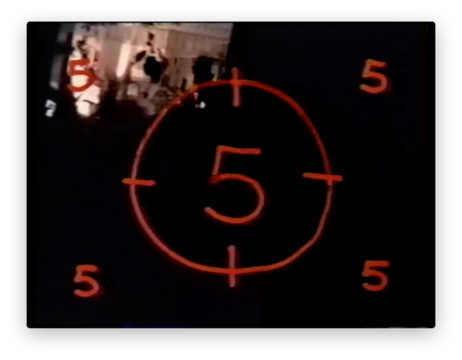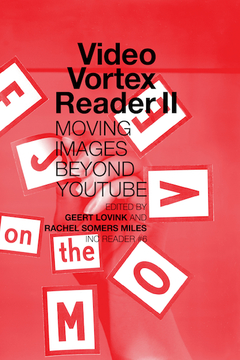Search results for 'interactive media'
Video Vortex Reader II
Open letter by Paolo Cirio to Roselyne Bachelot, French Minister of Culture
Open letter by Paolo Cirio.
Press Release Oct 6, 2020.
Addressed to Roselyne Bachelot, French Minister of Culture.
In response to the censored art installation at the exhibition Panorama 22, programmed at Le Fresnoy - Studio national, under the threat and pressure of the French Minister of Interior Gerald Darmanin.
Justice for Cecily
Cecily McMillan was brutally arrested at an event marking the 6 month anniversary of Occupy Wall Street on March 17, 2012. In the course of her arrest she sustained a violent police beating resulting in bruised ribs and a seizure. Cecily was hospitalized for those injuries. The egregious incident received extensive media coverage. Cecily was later charged and convicted with felony assault of a police officer, Assault 2nd degree, a Class D felony in NY, which carries a sentence of up to 7 years in prison.
A support campaign for the Occupy Wall Street organizer and activist is raising media attention and financial support.
Introducing the Global Power Project
An investigative series produced by Occupy.com that aims to identify and connect the worldwide institutions and individuals who comprise today's global power oligarchy.
ReadGlobalNoise
Activists involved in the Indignato, Occupy, #yosoy132, etc movements have begun a campaign to create GlobalNoise, a worldwide cacerolazo, or casserole march, on Saturday, October 13th, 2012. The hope is that local Occupations and Collectives will take up the call to march, using the method of a casserole march to highlight whatever issues are the most important to their community.
ReadThe People Want the Airwaves Back
This short essay was written in the run up to the fourth Next 5 Minutes festival of Tactical Media, which took place in Amsterdam September 11 - 14, 2003.
A Brief History of the Noborder Network
It wasn't exactly the right place nor really the right time to launch a political campaign which publicly called for a series of offenses against the law, yet when the call "No one is illegal" went out exactly five years ago at documentaX, the usual reservations counted little. In the Orangerie which had been temporarily arranged as a media laboratory, at the end of the visitors' course of the well-known Kassler art exhibition, a dozen political and media activists from all Germany's bigger cities met up at the end of June 1997 in order to publish an appeal.
ReadThe Internet Freedom Fallacy and Arab Digital Activism
This article focuses on grassroots digital activism in the Arab world and the risks of what seems to be an inevitable collusion with U.S foreign policy and interests. It sums up the most important elements of the conversation I have been having for the last two years with many actors involved in defending online free speech and the use of technology for social and political change. While the main focus is Arab digital activism, I have made sure to include similar concerns raised by activists and online free speech advocates from other parts of the world, such as China, Thailand, and Iran.
ReadMoments Within the Movement: A Conversation
Devin Allen and Stephanie Renée on the power of photography and citizen activism in contesting social injustice Fields of Knowledge
ReadHolograms for Freedom
The Citizens’ Securities Law’s Reform is an attack on the right of freedom of assembly. This measure restricts citizens’ liberties, and criminalizes their right to protest. Turning a right into an offence for which you can be pursued, detained, and judged.
To respond to this injustice and to show the future will have to face if this bill continues its course, we saw the need to carry out a different kind of protest that would allow our demands to become unstoppable: the first hologram protest in history.
A massive protest, through which we will demonstrate, that despite the trammels imposed by the government, they will not silence our voices, and even if we have to turn ourselves into holograms, we will keep on protesting.
www.hologramasporlalibertad.org/en.html#project
Wikileaks: The Syria Files
Today, Thursday 5 July 2012, WikiLeaks began publishing the Syria Files -
more than two million emails from Syrian political figures, ministries
and associated companies, dating from August 2006 to March 2012.
Paul Virilio
Paul Virilio (b. 1932 in Paris) is a world-renowned philosopher,
urbanist, and cultural theorist. His work focuses on urban spaces and
the development of technology in relation to power and speed. He is
known for his coining of the term 'dromology' to explain his theory of
speed and technology. Paul Virilio is of mixed ancestry, being the son
of an Italian father (who identified as a Communist) and a Breton
mother. As a small child in France during the Second World War, Paul
Virilio was profoundly impacted by the blitzkrieg and total war;
however, these early experiences shaped his understanding of the
movement and speed which structures modern society. In order to escape
the heavy fighting in the city, he fled with his family to the port of
Nantes in 1939.
TTIP Leaks
Greenpeace Netherlands has released secret TTIP negotiation documents. We have done so to provide much needed transparency and trigger an informed debate on the treaty. This treaty is threatening to have far reaching implications for the environment and the lives of more than 800 million citizens in the EU and US.
ReadSigns of the Times: the Popular Literature of Tahrir
Protest Signs, Graffiti, and Street Art - a special issue of Shahadat
This issue takes as its focus the popular literature of the Egyptian
Revolution. Drawing on protest signs, graffiti, and street art in Tahrir
to read the culture of resistance particular to the Egyptian
Revolution, the curators examine how protesters changed the political
narrative through the use of images, memorials, and expressions of daily
life. Featuring examples from an extensive gallery of online images
culled from the collections of several prominent Egyptian journalists
and activists, the online piece is a visual tour of some of the creative
production of Egypt's Revolution. A collaborative curation project
split between New York City and Cairo, this is ArteEast's first critical
look at the cultural production related to recent political
developments in the Middle East.
- Co-curators, Rayya El Zein & Alex Ortiz.
Tortugan tower blocks?
Pirate signals from the margins
ReadInterfiction
by ZKP
TRANSLATED MESSAGE:
The global data-network is on everyone's lips. Initiatives that plan
and promote the further extension of the nets in the big style
originate in politics and economy. Goal of this engangement is an
efficiency-oriented and economy- centered utilization of the new
structures of communication. The capacity of these projects is already
proven within a wide range of areas and especially curious people are
working with it yet. However, one can also judge this development
skeptically.
Access for All FAQ
Written for Interstanding - Understanding INteractivity conference, Tallinn, Estonia November 23-25, 1995 - RFC Draft 1.1
Political Ecology Begins When We Say "Black Lives Matter"
"They say it's a joke they say it's a game." The slogan was launched on the Chicago streets by the group We Charge Genocide, in the middle of a demo demanding reparations for victims of police torture. The folks on the street chanted those words, we hurled them out of our mouths in staccato bursts, while looking round at the passers-by who pretended not to notice. What the chant means is either enigmatic, or it's painfully obvious. There is a kind of disdain that minimizes a death or a beating or a torture or a life sentence for black people in the name of lawfulness, efficiency, morality and humanist ideals. That kind of disdain has made democracy impossible in the US - and other places too.
Read


